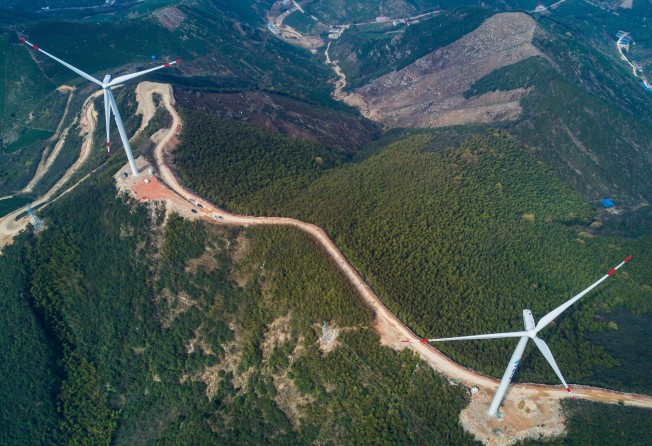
How China can replace the US as a champion of clean energy
Reda El Chaar says Beijing’s massive investments in clean energy make it the natural choice to take over the leadership role occupied by a wavering US, and China can step up in several ways

The US has been at the forefront of clean energy initiatives in emerging markets and is considered the global leader in this sector. In particular, its Power Africa campaign has improved electrification of the continent and played an important role in helping African countries use more wind and solar power.
Under its new political leadership, however, the US looks set to back away from participating in global action on climate change.
Any roll-back could create a void in global climate leadership. At present, Europe is too fragmented and too preoccupied to play a strong international role in the wake of Brexit. So who will champion renewable energy on the world stage?
However unlikely it would have seemed just a few years ago, China is the most credible candidate. The world’s second-biggest economy is evolving into the undisputed global leader in the wind and solar sectors, via an unprecedented wave of investment in manufacturing, and technology research and development.
China has realised the economic and political advantages of rising to the challenge of leadership. As Tim Buckley, director of the US-based think tank Institute for Energy Economics and Financial Analysis, said: “As the US owned the advent of the oil age, so China is shaping up to be unrivalled in clean power leadership today.”

The new US administration’s more America-centric approach may ultimately result in programmes such as Power Africa being sidelined at a time when Africa is close to reaching take-off for its transition to renewable energy. A US pullback could seriously undermine efforts to speed up electrification and provide cost-effective power for the hundreds of millions of people who are currently denied regular access, leaving a large vacuum on the ground.
But how ready and willing is China to step in?
China has realised the economic and political advantages of rising to the challenge of leadership
At the UN climate change conference last year in Marrakech, Morocco, China made a clear pitch for leadership, with senior negotiator Zou Ji stating that if the Trump administration stepped back on US climate commitments, “China’s influence and voice are likely to increase in global climate governance, which will then spill over into other areas of global governance and increase China’s global standing, power and influence”.
The economic incentive for China is clear. The country has become the largest market for renewable energy, with 34GW of solar photovoltaic capacity and 23GW of wind power capacity installed in 2016 alone, according to estimates. Vast support for research and development and new manufacturing investment has enabled China to play by far the biggest role in changing the economics of renewable power globally, making renewables cheaper than fossil fuels in a growing number of countries around the world.
The Chinese National Energy Administration recently confirmed its intention to invest at least US$360 billion on renewable energy development by 2020, a move that will create about 13 million jobs in the sector. Meanwhile, constant cost reductions and quality improvements in Chinese solar power modules are already allowing some developers to bid for projects at lower costs.
What does China need to do to step up?
While its clean-tech revolution is changing facts on the ground, playing a wider leadership role is a different question. Supplying equipment is one thing. But developing the vast number of projects that emerging markets need is another. The transformation will require a complex ecosystem of institutions, companies and entrepreneurs, and the availability of competitively priced capital.
Chinese companies need to grasp the huge opportunities available and get involved in more partnerships with international developers, and with local entrepreneurs. The Chinese government and financial institutions need to engage with initiatives being sponsored by regional institutions such as the African Development Bank, and assist local governments with designing the right frameworks and institutions to allow projects to be financed and built.
Reda El Chaar is executive chairman at Access Power